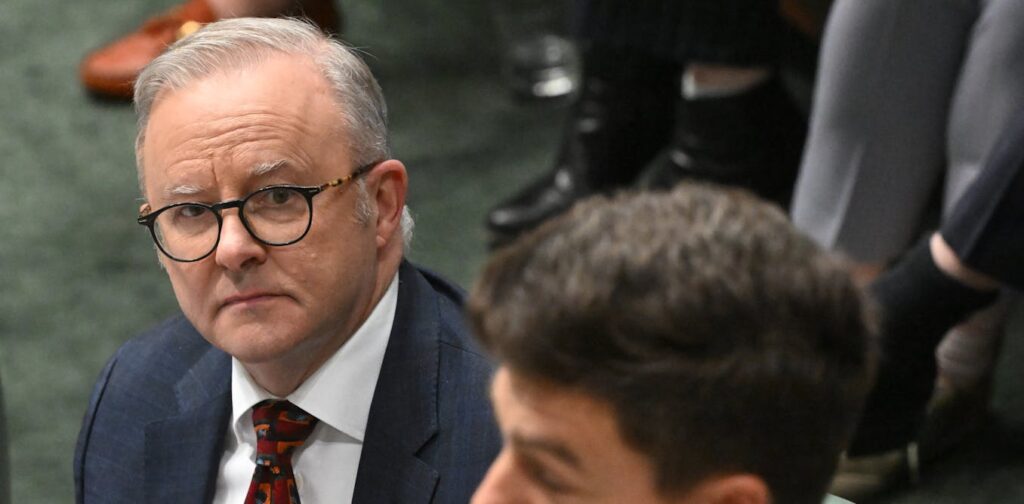
Despite his government’s dominant political position, Australian Prime Minister Anthony Albanese found himself on the defensive this week. Tensions rose as he faced scrutiny over a costly agreement with Nauru and the controversial presence of former Victorian Premier Dan Andrews at a military parade in Beijing.
Albanese was notably irritable during an ABC interview when questioned about the 30-year deal with Nauru, which could cost up to $2.5 billion. The arrangement involves Nauru taking former immigration detainees, a detail revealed during a brief Senate inquiry. The prime minister’s terse dismissal of a report on the return of “ISIS brides” and their families further highlighted his discomfort. Although the government isn’t facilitating repatriation, New South Wales and federal police are preparing for potential arrivals.
Transparency and Freedom of Information Concerns
Albanese’s administration also faced criticism over new freedom of information legislation introduced this week. While some changes were deemed reasonable, the new rules are expected to limit public access to decision-making information at senior government levels. Former crossbench senator Rex Patrick described the changes as an “Albanese counterrevolution” that undermines citizens’ rights to access crucial information.
Meanwhile, Dan Andrews’ attendance at China’s military parade added to the prime minister’s challenges. Andrews, now a private citizen, appeared in a “family photo” with global leaders, prompting dismay within the Labor Party. The parade underscored the delicate diplomatic balance the Australian government maintains with China. While embassy officials attended, Australia’s ambassador was notably absent from the event.
Opposition Challenges and Political Dynamics
On the opposition front, divisions over net-zero targets and immigration policies continued to plague the Coalition. Several senators, including Nationals frontbenchers, crossed party lines to support a One Nation motion on immigration, defying the principle of shadow cabinet solidarity.
Senator Jacinta Nampijinpa Price’s inflammatory remarks about Indian immigration further strained relations within the Liberal Party. Despite these challenges, Opposition Leader Sussan Ley secured a win by pressuring the government to advance home care packages, following criticism of delays in aged care reforms.
The Senate’s rare alignment of Coalition, Greens, and crossbenchers led to an amendment passing that forced the government to expedite home care packages. This unexpected coalition demonstrated the Senate’s potential to challenge the government, despite its typically smoother legislative path post-election.
Albanese’s Political Strategy and Future Outlook
Albanese, like some of his predecessors, finds parliamentary sessions challenging. As one Labor insider noted, “Parliament is the home ground for the opposition.” The prime minister prefers engaging with the public across the country, though it comes with its own exhaustion.
Critics suggest Albanese’s recent demeanor reflects second-term arrogance. His confidence, bolstered by the election, contrasts with perceptions of his government as cautious and non-reformist. The respected economics writer Ross Gittins recently criticized Albanese, suggesting he should retire if he “can’t bring himself to govern.”
With parliament in recess for a month, Albanese enters the international summit season, starting with the Pacific Islands Forum in the Solomon Islands. Leaders there will seek insight into Australia’s 2035 emissions reduction target, set to be announced before the United Nations leaders’ week in New York.
Albanese’s government is expected to propose a target range of 65-75% reduction on 2005 levels, though Energy Minister Chris Bowen indicated the target might not be legislated if parliamentary opposition is significant.
The prime minister’s most critical engagement will be his September visit to the United States, where a meeting with President Donald Trump is anticipated. The focus will shift from Albanese’s mood to the unpredictable nature of the U.S. president.






